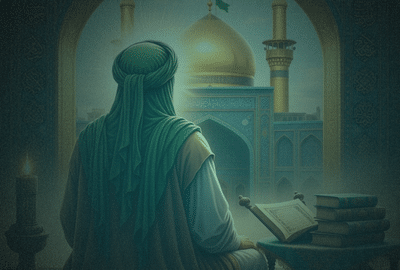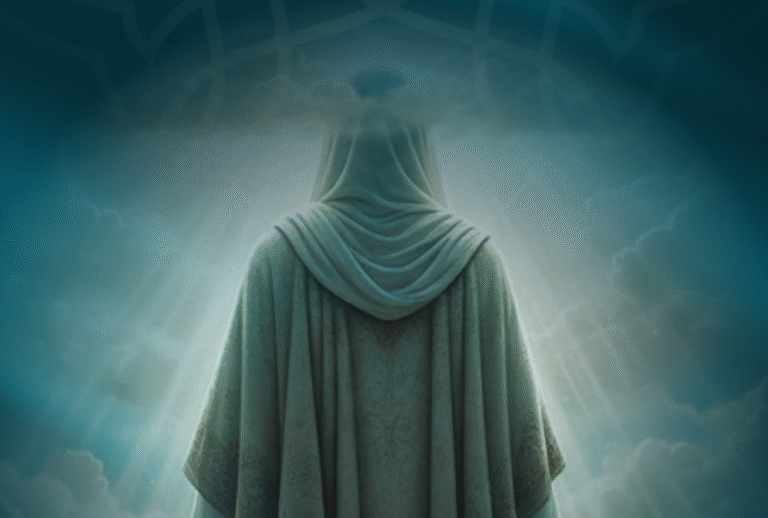Imam al-Ridha (as): A Legacy of Knowledge That Still Guides Us
Imam Ali Al-Ridha (as), the 8th Imam of the Ahlulbayt (as), was a shining example of knowledge, wisdom, and humility.
Through respectful dialogue with scholars of all faiths, he demonstrated the value of learning rooted in faith and character.
In honour of his legacy, we reflect on three powerful hadiths that highlight the importance of knowledge in Islam — and what it truly means to be a seeker of truth.
Read more about Imam Al-Ridha (as) here.
True Friendship: Intellect vs. Ignorance
Imam Al-Ridha (as) is reported to have said, “The friend of every man is his intellect and his enemy is his ignorance.” (Al-Kafi, v.1, p.11, n.4)
In just a few words, Imam Al-Ridha (as) teaches us something profound: our greatest ally is our own mind, when it is guided by faith, reason, and reflection.
Intellect isn’t just about intelligence; it’s about using wisdom to make decisions that please Allah (swt) and benefit others. On the other hand, ignorance distances us from truth and leads to harmful choices.
This hadith reminds us to nurture our intellect and to recognize ignorance not just as a lack of knowledge, but as a spiritual barrier.
The Burden of Ignorance
Imam Al-Ridha (as) has reportedly said, “The ignorant man’s friend is always wearied.”
(Biḥar al-Anwar, v.78, p.352, n.9)
The Imam (as) reminds us that ignorance doesn’t just harm the one who carries it; it also wears down the people around them.
A person who lacks understanding often makes choices that create confusion, frustration, or even harm, causing their friends and family to carry emotional and mental burdens.
This hadith is a call to seek knowledge not just for ourselves, but out of care for those around us.
As Allah (swt) says in the Quran, “Do not follow the ideas of which you have no knowledge (because even) the ears, the eyes and the mind — all these (means of knowledge) — shall surely be questioned.” (17:36).
Knowledge uplifts; ignorance exhausts.
The Wisdom of Silence
Imam Al-Ridha (as) is narrated to have said, “Verily silence is one of the doors to wisdom; verily silence secures love; verily it leads one to all good.” (Al-Kafi, v.2, p.113, n.1)
In a world where constant noise fills our lives, the Imam (as) reminds us of the power of silence.
Silence isn’t just the absence of words; it’s an active doorway to reflection, understanding, and wisdom.
When we speak less, we listen more. We think before we respond. And we build trust and love by showing restraint.
The Imam (as) teaches us that silence isn’t weakness — it’s a path to all that is good.
Conclusion
From intellect and wisdom to the power of silence, these teachings from Imam Al-Ridha (as) remind us that knowledge is not just a privilege — it’s a responsibility.
It shapes character, strengthens communities, and brings us closer to Allah (swt). As we honour his legacy, let’s help build a future rooted in learning.
FAQ
Imam Ali al-Ridha (as) was the eighth Imam of the Ahlulbayt (as), widely known for his exceptional intellect, spiritual insight, and calm composure. He lived under the Abbasid rule and earned great respect from Muslims and non-Muslims alike for his wisdom and conduct.
Imam Al-Ridha (as) became known for his extensive knowledge through public debates and intellectual discussions. Whether with religious scholars, scientists, or philosophers, he presented Islam with depth and dignity, winning hearts and minds with calm reasoning.
Some traditions mark the shahadat of Imam Al-Ridha (as) on the 17th of Safar, while others observe it on the 29th. This difference is due to variations in historical reports passed down through generations. Both dates are recognised by Shia communities.
Imam Al-Ridha (as) is buried in Mashhad, in northeast Iran. His shrine is among the most important pilgrimage sites for Shia Muslims and stands as a place of spiritual connection, prayer, and reflection.


 Donate Now
Donate Now
 Donate
Donate









